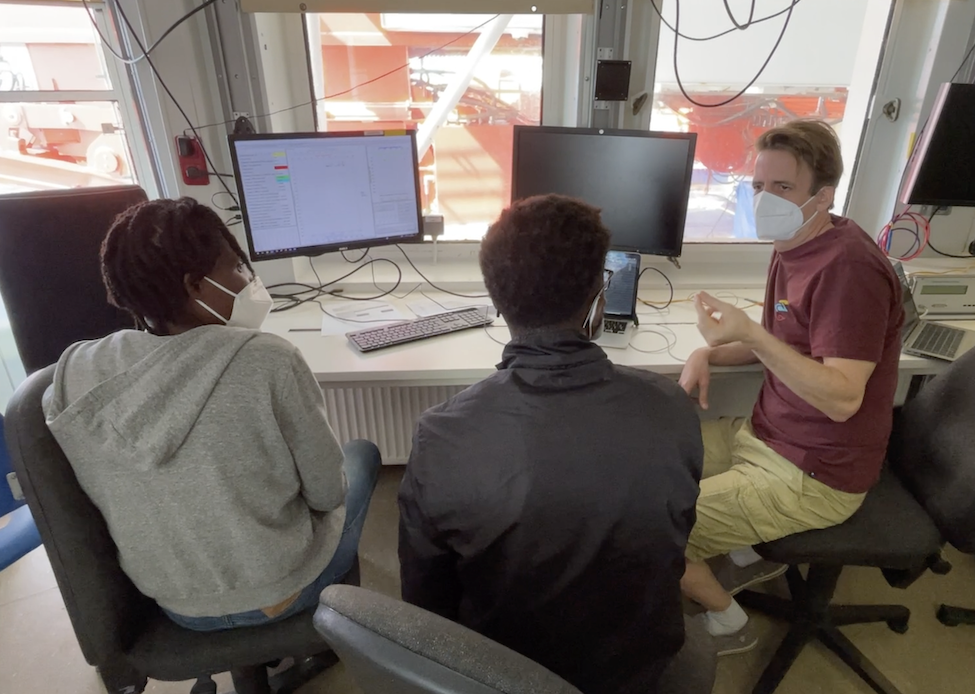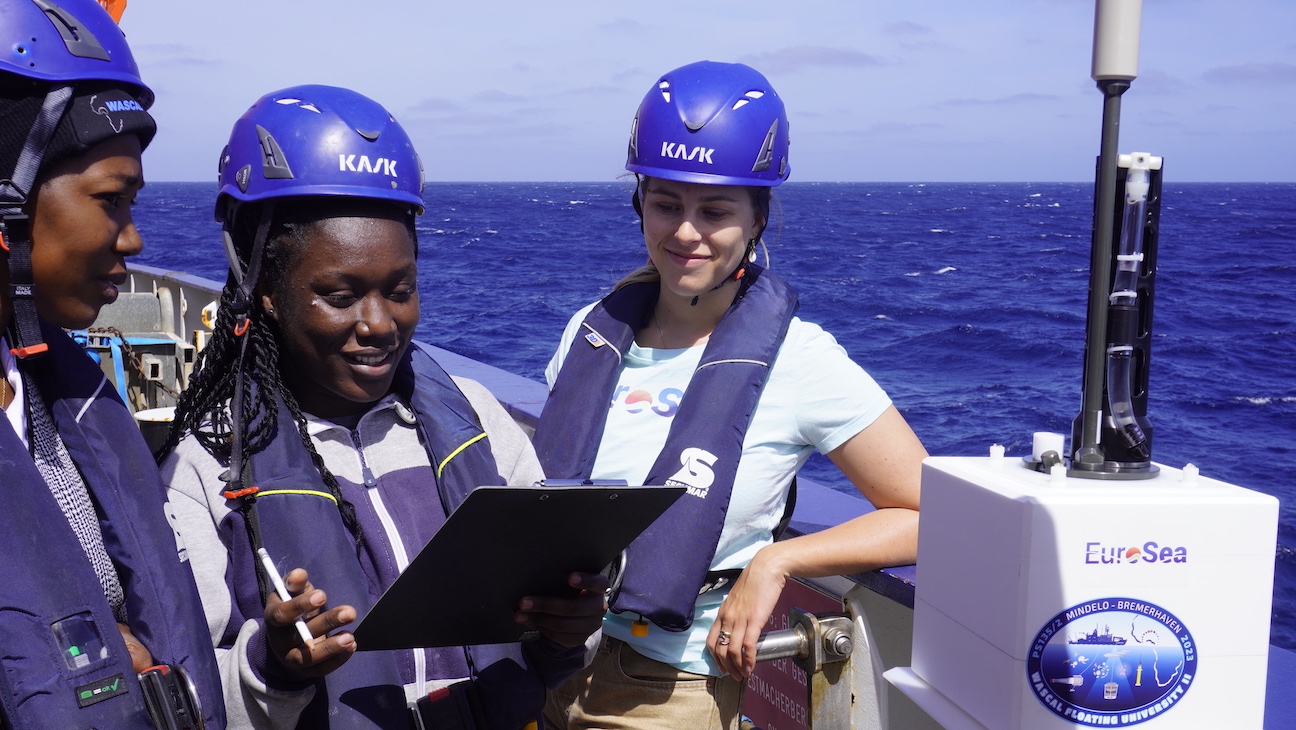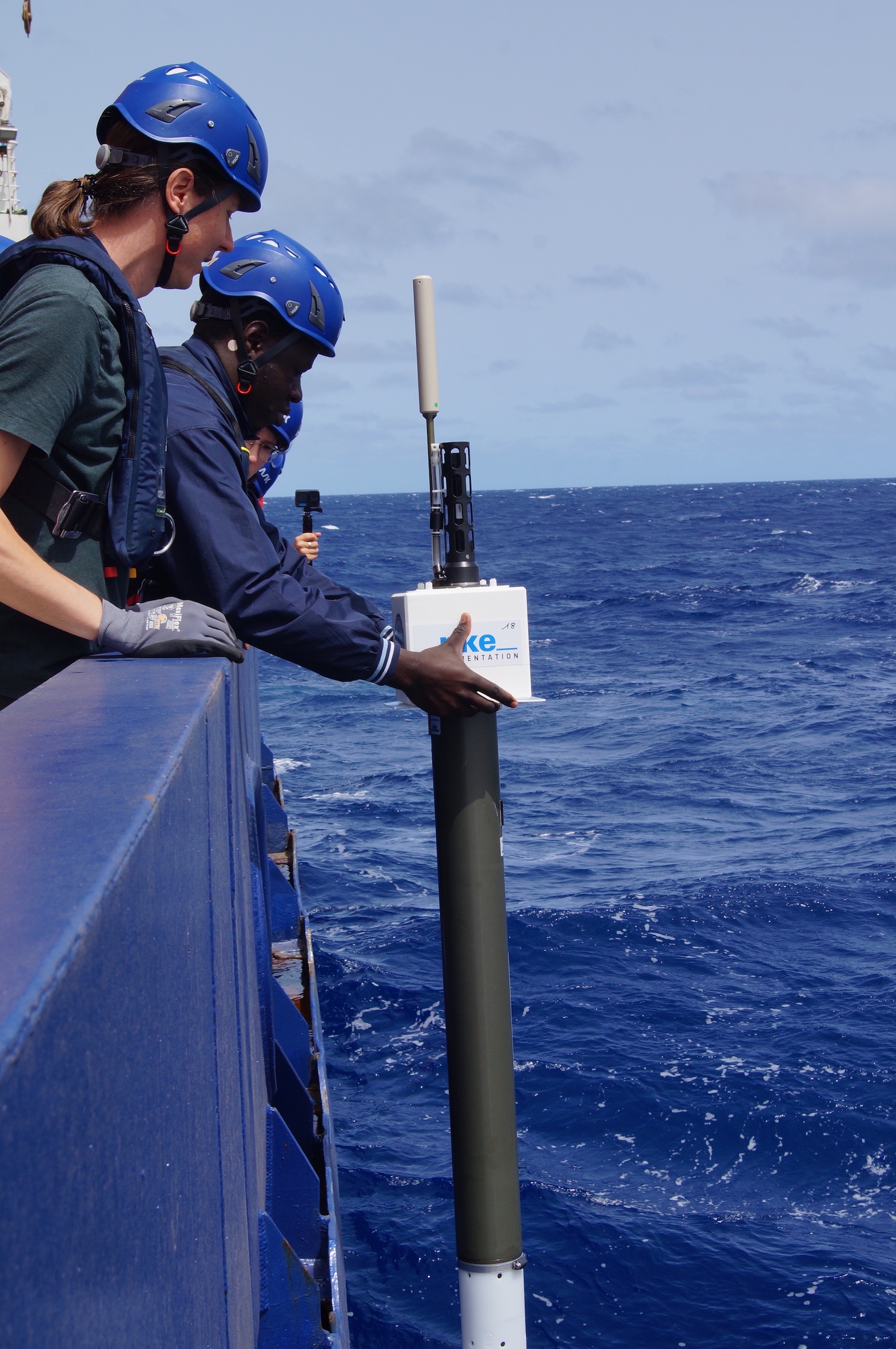Life aboard the RV Polarstern, one of the world’s most renowned research vessels, is like nothing else. The smell of the ocean, the hum of the engines, and the endless horizon stretching out in every direction—it’s a thrilling and awe-inspiring experience. But beyond the romance and adventure lies a critical mission: to understand the ocean and its complex systems in order to understand and protect life on our planet. And as the global community continues to face growing threats from climate change, pollution, and overfishing, it’s more important than ever to engage and inspire the next generation of ocean explorers.
Every day on board begins with the anticipation of a new day of research. We all gather early for breakfast, fueling ourselves up for the day ahead before setting out to carry out our various tasks. The oceanographers prepare the deployment of the CTD, a device that measures the ocean’s temperature and salinity and many other parameters at different depths. The biogeochemists and microbiologists prepare their sampling bottles and reagents, eagerly awaiting the return of the CTD to collect their samples from the Niskin bottles. And meanwhile, the ecologists ready the multinet to collect plankton from various depths in the water column. Each group plays a crucial role to help improve our understanding of the ocean. But the most exciting part of this cruise is the presence of the WASCAL students, the next generation of ocean professionals, eager to learn and contribute to the important work the scientists are doing.

As I was walking through the ship’s labs one afternoon, I overheard two WASCAL students, Wise Datsomar from Ghana and Christelle Akonde from the Republic of Benin, excitedly discussing their insights in the winch room watching the CTD sensor profiles on temperature, salinity and chlorophyll gradually visualize in real-time.
„It is very exciting to see how this data is contributing to global ocean observation systems helping us understand climate change!”
– says Christelle pointing at the computer screen.
They are assisting Sunke, who is leading the oceanography module on board, gaining valuable firsthand experience in how CTD sensors and Argo Floats help us collect valuable data on the ocean’s biological, chemical and physical properties and how it contributes to our understanding of the changing ocean. It is inspiring to see how passionate and dedicated the students are trying to understand the complex interactions in the ocean and how this data contributes towards sustainable ocean observation, monitoring, and forecasting.

As the sun begins to set, the scientists and students gather in the mess for dinner and a well-deserved break. Our time aboard the RV Polarstern slowly comes to an end, and we are all filled with gratitude for this great experience and the big collection of new experiences and memories. The past two weeks have shown how important it is to engage the next generation in ocean science and research. This cruise has provided a unique opportunity for students to work alongside experienced scientists and witness firsthand the value of ocean observations.
We watch as the sky turns shades of orange and pink, the sun sinking below the horizon. It is a peaceful evening, and for a brief moment, we all forget about the work we were doing today and simply enjoy the beauty of the ocean around us.
Fiona-Elaine Strasser
EuroSea, GEOMAR
PS135-2 Communication Instructor
